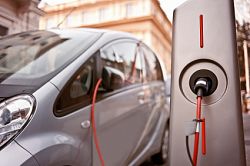

The Committee on Climate Change (CCC) urges the Government to change the date of its policy that bans the sale of new petrol and diesel cars and vans in 2040. They want to bring it forward a whole decade earlier.
The CCC argues that by mid-2020 the price of fully electric cars will match the price of petrol cars. Also the introduction of zero-emission zones in cities will result in a great increase in the percentage of all-electric car ownership in the UK. However the current speed of installing vehicle charging points is way too slow to cope with the near-future demand.
Critics have pointed out that once the proposed ban comes into force in 2040, there may still be plenty of petrol and diesel cars and vans around in 2050, which is the date the Government set to reduce all UK carbon net emissions to zero.
The CCC also believes that drivers can benefit from switching to all-electric when the price comes down, as it would cut the cost of running the vehicle as well as servicing, while drastically reducing the emissions from the everyday commute, improving the local air quality. Therefore, 2030 is seen to be a feasible date for the Government to ban the sale of new petrol and diesel cars.
Although the idea seems achievable, there is a viable problem of using limited natural resources for the production of car batteries which use scarce materials such as lithium and cobalt. Especially cobalt, most of which comes from the Democratic Republic of Congo, which is mined under conditions that often violate human rights.
Sources at the Department for Transport (DfT) indicated that the Government might consider tweaking the switchover target if drivers were turning to electric cars more quickly. Also, DfT is in talks with the Treasury over a new plan to subsidise car charging points in people's homes.